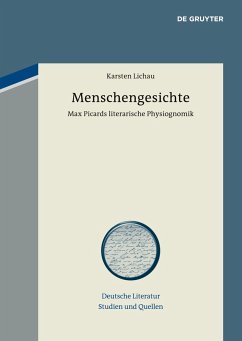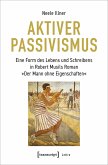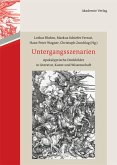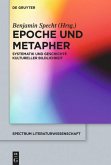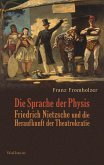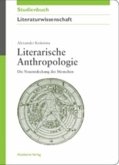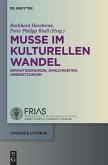Karsten Lichau explores the strains and breaks in Picardâ??s early works (1914â??1933). The focus is on a literary trope that was both controversial and illuminative: the human countenance. This study combines close textual readings with contextualization in cultural history, opening new perspectives on Picardâ??s contribution to the literary world of the Weimar period.
Max Picards frühe Schriften zeichnen sich durch eigenwillige literarische und kulturphilosophische Positionen aus. Karsten Lichau lotet die Spannungen und Brüche in Picards oft vorschnell als kulturpessimistisch oder konservativ etikettiertem Frühwerk aus, das zwischen 1914 und 1933 entstand. Im Zentrum steht dabei eine ebenso umkämpfte wie schillernde literarische Figur: das Gesicht. Indem die Studie textnahe Lektüre mit kulturhistorischer Kontextualisierung verbindet, geht sie den Um- und Abwegen der schriftstellerischen Laufbahn Picards nach und eröffnet neue Perspektiven auf seinen weitgehend in Vergessenheit geratenen Beitrag zum literarischen Feld der Weimarer Zeit. Zugleich zeigt die Untersuchung, dass Picards Texte die fiktiven oder prophetischen "Gesichte" reflektieren, die in außerliterarischen Feldern zirkulieren - von Kunst- und Medientheorie über Geschichtsphilosophie sowie jüdische und christliche Theologie bis hin zur ästhetischen Medizin und Rassenhygiene. Sielassen sich als eine "literarische Physiognomik" moderner Kulturen lesen.
Max Picards frühe Schriften zeichnen sich durch eigenwillige literarische und kulturphilosophische Positionen aus. Karsten Lichau lotet die Spannungen und Brüche in Picards oft vorschnell als kulturpessimistisch oder konservativ etikettiertem Frühwerk aus, das zwischen 1914 und 1933 entstand. Im Zentrum steht dabei eine ebenso umkämpfte wie schillernde literarische Figur: das Gesicht. Indem die Studie textnahe Lektüre mit kulturhistorischer Kontextualisierung verbindet, geht sie den Um- und Abwegen der schriftstellerischen Laufbahn Picards nach und eröffnet neue Perspektiven auf seinen weitgehend in Vergessenheit geratenen Beitrag zum literarischen Feld der Weimarer Zeit. Zugleich zeigt die Untersuchung, dass Picards Texte die fiktiven oder prophetischen "Gesichte" reflektieren, die in außerliterarischen Feldern zirkulieren - von Kunst- und Medientheorie über Geschichtsphilosophie sowie jüdische und christliche Theologie bis hin zur ästhetischen Medizin und Rassenhygiene. Sielassen sich als eine "literarische Physiognomik" moderner Kulturen lesen.

